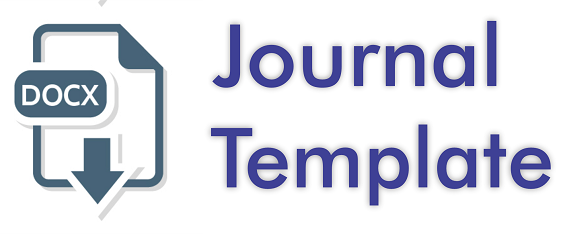Pengaruh Kualitas Penerapan GCG (Good Corporate Governance) dan Struktur Modal Terhadap Kinerja Keuangan Perbankan Syariah Periode 2016-2020
DOI:
https://doi.org/10.59107/ri.v4i1.38Keywords:
Governance, Audit, Commissioners, Ownership, PerformanceAbstract
This study is based on previous research and phenomena that still show gaps and inconsistencies, making further investigation necessary to provide novelty. The focus of this research is to analyze how Good Corporate Governance (GCG) through the audit committee, board of commissioners, managerial ownership, and capital structure affects the sharia-based financial performance of banks in Indonesia during 2016–2020. GCG mechanisms such as the audit committee and board of commissioners play a vital role in supervising financial statement preparation, decision-making, and evaluation, which directly influence company performance. Meanwhile, capital structure represents the balance between debt and equity as sources of funding for operational activities. This study uses secondary data obtained from annual reports of Islamic commercial banks listed on the Indonesia Stock Exchange (IDX) and the Sharia Banking Statistics (SPS) published by the Financial Services Authority (OJK). The analysis method applied is multiple linear regression, supported by classical assumption tests to ensure validity and reliability of results. The research sample was selected using purposive sampling to represent relevant criteria. Data processing was conducted using EViews version 12 software to obtain accurate and comprehensive findings.
Downloads
References
Achta Pratama, F. (2022). Analisis Peran Pendidikan Vokasi Dalam Pengembangan Industri Halal di Indonesia. Risalah Iqtisadiyah: Journal of Sharia Economics, 1(1), 1–7. https://doi.org/10.59107/ri.v1i1.22
Alysha, A., Suhendro, S., & Siddi, S. (2019). Pengaruh kepemilikan institusional, komite audit, dan kebijakan dividen terhadap kinerja keuangan perusahaan BUMN. Jurnal Manajemen.
Amelia, R., & Harmain, H. (2021). Pengaruh dewan komisaris independen terhadap kinerja keuangan perusahaan yang terdaftar di BEI. Jurnal Ekonomi Dan Bisnis.
Boedex, B. (2016). Good corporate governance: Tinjauan etika dalam praktik bisnis. Mitra Wacana Media.
Bundo, M., & Pratama, F. A. (2024). Analysis of Sharia-Based Hotels on Sustainable Tourism in West Sumatera Indonesia. Journal of Islamic Economics and Finance Studies, 5(1), 173–191. https://doi.org/10.47700/jiefes.v5i1.7378
Dewi, N. L. (2016). Struktur modal dan kinerja keuangan bank syariah di Malaysia. Jurnal Keuangan Dan Perbankan Syariah.
Imam Ghozali. (2012). Aplikasi Analisis Multivariate dengan Program IBM SPSS 20 Edisi 6. Badan Penerbit Universitas Diponegoro.
Indriani, I., & Ratnawati, A. (2017). Pengaruh intellectual capital, struktur modal, dan inflasi terhadap kinerja keuangan perbankan syariah. Jurnal Ekonomi Dan Keuangan Islam.
Indriati, S. (2018). Kepemilikan manajerial dan pengaruhnya terhadap kinerja keuangan perusahaan perbankan. Jurnal Akuntansi Dan Manajemen.
Jensen, M. C., & Meckling, W. H. (1976). THEORY OF THE FIRM: MANAGERIAL BEHAVIOR, AGENCY COSTS AND OWNERSHIP STRUCTURE. In Journal of Financial Economics (Vol. 3). Q North-Holland Publishing Company.
Muslim, M., Amdahurifky, A., & Pratama, F. A. (2025). Pemberdayaan Remaja Masjid Melalui
Peningkatan Kapasitas Leadership Dengan Metode Service-Learning Di Kecamatan Koto Tangah. INTEGRITAS : Jurnal Pengabdian. https://doi.org/10.36841/integritas.v9i1.6224
Muslim, M., M. Wahyudi, Eka Putra, D., & Pratama, F. A. (2025). Optimasi Penjualan Produk Melalui Pelatihan Digital Marketing Bagi UMKM Halal Di Kecamatan Koto Tangah. INTEGRITAS : Jurnal Pengabdian. https://doi.org/10.36841/integritas.v9i1.6246
Pratama, F. A. (2022). Relevansi Pengetahuan Dengan Pencegahan Covid-19 di Masyarakat. Jurnal Ekologi, Masyarakat Dan Sains, 3(1), 21–26. https://doi.org/10.55448/ems.v3i1.41
Pratama, F. A., & Effendi, H. (2021). E-Learning Bebasis Wordpress Sebagai Alternatif Media Pembelajaran. 4(3), 466–475. https://doi.org/https://doi.org/10.23887/jp2.v4i3.41534
Pratama, F. A., & Giatman, M. (2021). Manajemen Kepemimpinan Kepala Sekolah dalam Membangun Kompetensi Guru. 7(1), 35–50. https://doi.org//https://doi.org/10.24090/jk.v1i1.530
Pratama, F. A., Wahyudi, M., Eka Putra, D., Muslim, M., & Effendi, H. (2023). Analysis of the Role of Vocational Education for the Halal Tourism Development in Indonesia. Edumaspul: Jurnal Pendidikan, 7(2), 6053–6068. https://doi.org/10.33487/edumaspul.v7i2.7585
Pratama, F. A., Yufa, N. A., & Abimayu, M. F. (2025). PENGEMBANGAN E-LEARNING BERBASIS SPIRITUAL UNTUK PELATIHAN DIGITAL MARKETING BAGI. Jurnal Dinamika Ekonomi Syariah, 12(1), 210–219. https://doi.org/https://doi.org/10.53429/jdes.v12i1.1355
Pratiwi, D. (2016). Pengaruh penerapan good corporate governance terhadap kinerja keuangan bank umum syariah. Jurnal Akuntansi Multiparadigma.
Puradiredja, K. (2016). Good corporate governance di Indonesia: Teori dan praktik. RajaGrafindo Persada.
Rodoni, A., Raisa Medina, A., & Yaman, B. (2020). Efficiency And Stability Of Islamic Banking In ASEAN. Al-Iqtishad: Jurnal Ilmu Ekonomi Syariah, 12(1), 63–76.
Sucipto. (2003). Penilaian kinerja perusahaan. Gramedia.
Sugiyono. (2019). Metode Penelitian kuantitatif kualitatif dan R&D (2019th ed.). Alfabeta.
Tertius, R., & Christiawan, Y. J. (2016). Pengaruh dewan komisaris independen terhadap kinerja perusahaan. Jurnal Akuntansi Dan Keuangan.
Wahyudi, M., Fitri, R., Pratama, F. A., & Febrianto, R. (2024). The Sound Changes in the Minangkabau Language Spoken by Padangâ€TM s Ethnic Chinese. Journal of Innovation in Educational and Cultural Research, 5(1), 164–169. https://doi.org/10.46843/jiecr.v5i1.1106
Wahyuni, H., Rilianti, F. Y., Afiatika, A., Isyrahlia, Pratama, F. A., & M. Wahyudi. (2024). The Influence Of Social Media On Waqf Funding In BPW Ar Risalah. RISALAH IQTISADIYAH: Journal of Sharia Economics, 3(1), 18–25. https://doi.org/https://doi.org/10.59107/ri.v3i1.67
Winarno, W. W. (2017). Analisis ekonometrika dan statistika dengan EViews. UPP STIM YKPN.
Downloads
Published
Issue
Section
License
Copyright (c) 2025 RISALAH IQTISADIYAH: Journal of Sharia Economics

This work is licensed under a Creative Commons Attribution 4.0 International License.
License
The non-commercial use of the article will be governed by the Creative Commons Attribution license as currently displayed on http://creativecommons.org/licenses/by/4.0/. This licence allows the user to distribute, remix, tweak, and build upon the licensed work, including for commercial purposes, as long as the original author is credited.
Author’s Warranties
The author warrants that the article is original, written by stated author/s, has not been published before, contains no unlawful statements, does not infringe the rights of others, is subject to copyright that is vested exclusively in the author and free of any third party rights, and that any necessary written permissions to quote from other sources have been obtained by the author/s.
User Rights
Under the Creative Commons Attribution license, the author(s) and users are free to share (copy, distribute and transmit the contribution).
Rights of Authors
Authors retain the following rights:
- copyright, and other proprietary rights relating to the article, such as patent rights,
- the right to use the substance of the article in future own works, including lectures and books,
- the right to reproduce the article for own purposes, provided the copies are not offered for sale,
- the right to self-archive the article.
Co-Authorship
If the article was prepared jointly with other authors, the signatory of this form warrants that he/she has been authorized by all co-authors to sign this agreement on their behalf, and agrees to inform his/her co-authors of the terms of this agreement.
Termination
This agreement can be terminated by the author or RISALAH IQTISADIYAH: JOURNAL OF SHARIA ECONOMICS upon two months’ notice where the other party has materially breached this agreement and failed to remedy such breach within a month of being given the terminating party’s notice requesting such breach to be remedied. No breach or violation of this agreement will cause this agreement or any license granted in it to terminate automatically or affect the definition of RISALAH IQTISADIYAH: JOURNAL OF SHARIA ECONOMICS.
Royalties
This agreement entitles the author to no royalties or other fees. To such extent as legally permissible, the author waives his or her right to collect royalties relative to the article in respect of any use of the article by RISALAH IQTISADIYAH: JOURNAL OF SHARIA ECONOMICS or its sublicensee.
Miscellaneous
RISALAH IQTISADIYAH: JOURNAL OF SHARIA ECONOMICS will publish the article (or have it published) in the Journal, if the article’s editorial process is successfully completed and RISALAH IQTISADIYAH: JOURNAL OF SHARIA ECONOMICS or its sublicensee has become obligated to have the article published. RISALAH IQTISADIYAH: JOURNAL OF SHARIA ECONOMICS may conform the article to a style of punctuation, spelling, capitalization and usage that it deems appropriate. The author acknowledges that the article may be published so that it will be publicly accessible and such access will be free of charge for the readers. RISALAH IQTISADIYAH: JOURNAL OF SHARIA ECONOMICS will be allowed to sublicense the rights that are licensed to it under this agreement.


.png)
.png)






